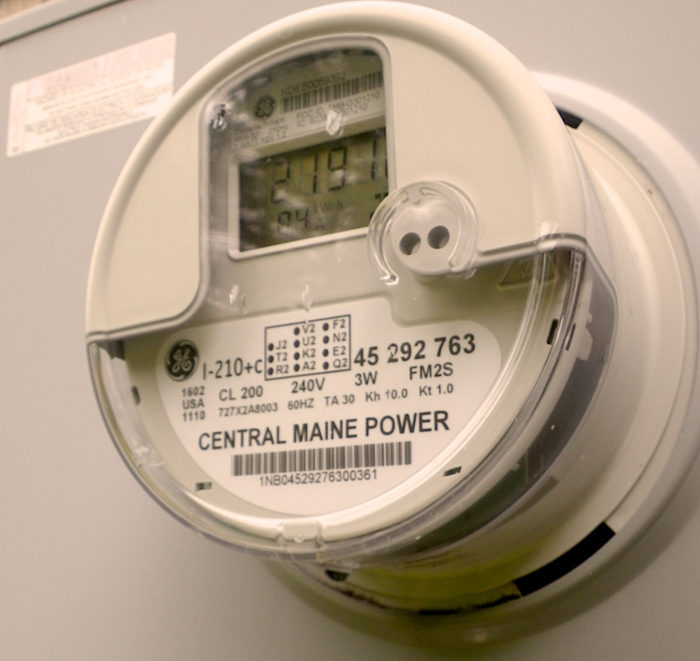
Love them or hate them, smart meters are becoming increasingly common around the globe.
Advocates believe that the meters generate better data for both energy consumers and service providers. These meters can provide homeowners with feedback on their energy consumption, which helps them change their habits in order to reduce monthly utility bills. Critics, however, have voiced concern over health and safety issues, asserting that smart meters present fire hazards, emit dangerous levels of radiation, and violate privacy.
The smart meter system is comprised of wireless, two-way monitors that capture and store data about energy usage. Although primarily used for electricity usage data, smart meters are also being used by other utilities supplying gas and water. The meters used for utilities other than electric provide the same benefits to consumers, allowing them to monitor their usage and reduce their monthly bills. Once the meter is placed on a home and activated, many smart meters provide virtual access by consumers to usage data.
Giving consumers more control
Data tracking for utilities begins at a per hour view and goes up to monthly overall usage. Customers now have access to data that tells them what their peak hours are for energy consumption, which means that they can be conscientious about reducing their energy usage during those hours. It runs on a supply and demand model, which allows the customers to adjust their usage depending on how much they are willing to spend.
The utility providers that adopt time-of-use billing provide further incentives to reduce energy usage: if energy usage is at its peak in the evening, rates will go up at that time to compensate for the extra pressure on the electrical system. Utility companies hope that this it will cause users to make changes so they use more energy during non-peak hours, which would result in a lower rate for the user and less stress on the system.
Smart meters have proven to be especially popular in energy deregulated states in America where users are free to choose their own electricity provider – here, a smart meter can let them save even more money. Companies like IGS Energy in Ohio and BrightSource Energy in California not only use more renewable sources of energy and allow customers to choose how the electricity they buy is generated, but offer their customers a way to double up on their eco-friendliness by adjusting their energy usage according to the smart meter data.
Worries about hacking and privacy
Given the number of high-profile hacking cases across the globe, many worried citizens have expressed concern over the security of these smart meter systems. This isn’t just a matter of concern for North Americans, either; given the growing popularity of smart meters in Asian countries like China and the Philippines, the pressure is on companies to make sure that smart meters and the information they gather are secure.
Given the vulnerable nature of wireless systems, and the increasingly savvy hackers from all corners of the globe, many are concerned that hackers could easily steal smart meter data.
Smart meters give incredibly specific information that goes beyond merely noting when electricity is and isn’t used. Hackers can use smart meter data to pinpoint which device is using energy in which room. They can even turn the power off to the home or business, rendering it, and any alarms in it, vulnerable to attack. This issue is of particular concern for business owners who are putting their money, property, and inventory at risk in some cases.
It’s not just the vulnerability to hacking that concerns users, either — it’s the fact that the information that the energy company stores about consumers’ usage can be used against them in criminal investigations. For example, a law passed in California in 2011 required annual transparency reports from utility companies. In 2013 alone, San Diego Gas & Electric gave the energy usage information of over four thousand of its customers to law enforcement agencies without the customers’ knowledge, raising major ethical and legal questions.
Many states and many countries don’t have laws requiring privacy, meaning that any official who wishes to access the highly detailed information stored by your smart meter can get it.
Manufacturers will have to address these concerns
These are somewhat extreme examples, and smart meters can genuinely do good, particularly in monitoring and reducing energy use. The reality of the matter is that they aren’t fail-safe and until they’re proven to be, the concerns will remain.
We live in a time where privacy of information is increasingly rare. While we expect the insignificant details of daily life, such as when we watch a DVD or when our last employee turns off the lights, to remain our knowledge alone, that is not necessarily the case.
Government efforts, such as the U.S. Department of Energy’s Voluntary Code of Conduct (VCC), may help ease consumers’ minds about privacy concerns. The VCC requires utility companies to enact departments of trained employees who will monitor meter security. Employees will be trained to prevent and counteract cyberattacks and leaked information.
Governing smart meter privacy is one large step toward safer usage, although ultimately the manufacturers need to make it their imperative to adequately address privacy issues; making smart meters safer (and therefore, viable in the long term) is in their best interest from a business standpoint, and it’s in the consumers’ best interest from an ecological standpoint.
Emma Bailey is a writer in the greater Chicago area who covers technology, entertainment, and business. This post originally appeared at Eco-Business, a web site that describes itself as “the leading provider of news and views for Asia Pacific’s clean tech and sustainable business community.”
Weekly Newsletter
Get building science and energy efficiency advice, plus special offers, in your inbox.





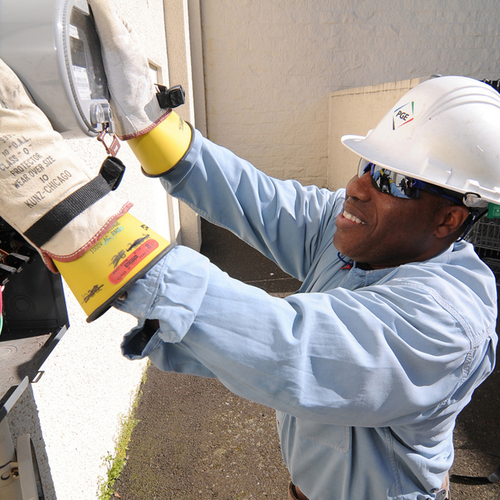
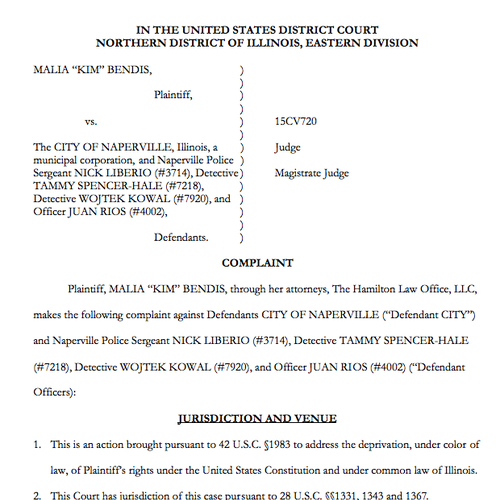
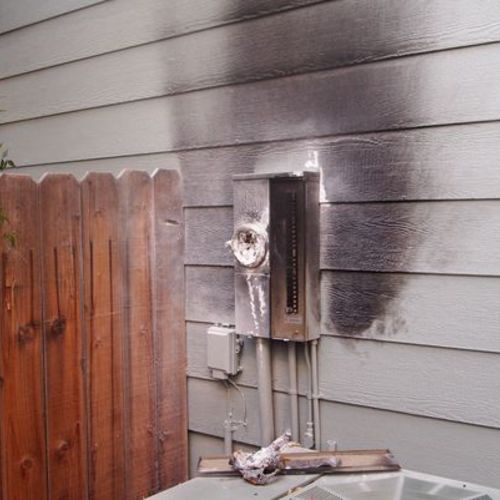
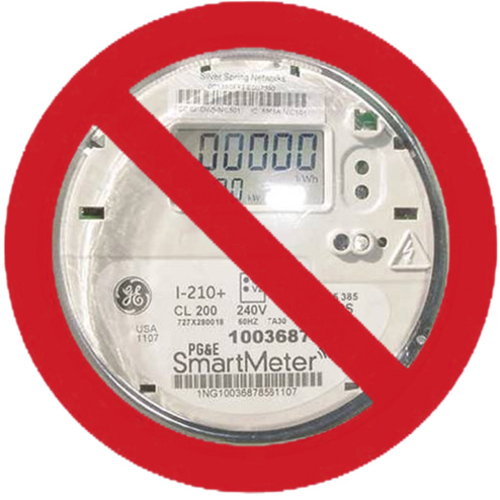






19 Comments
Too Bad This Blog Accepts Non-Facts
It appears "journalists" can write or believe anything these days with fact checking relegated to an inconvenient and largely unnecessary task. And then previously respected resources like GBA rubber-stamp and propagate the concepts. Smart meters can't tell what room is being used and alarms don't depend on utility power. Communicating meters have been used for decades in right wing states like Texas without concern. In fact, most residents like them as they keep the meter readers off the property. Finally it is not necessary for the meter to have the ability to remotely disconnect, but even if it's did have that function, why is cyber security not a concern in our banking systems we all use daily? It seem scientists should not spread irrational panic in this way unless it is really just a matter of editorial policy.
rjp - Thank you.
I thought I was going crazy... how could an upstream meter know what device in a specific room was drawing electricity? I've heard people worry about the WiFi signals too... are we aware of the deluge of radio waves passing in, through and around us? If communication waves were opaque I probably couldn't see my hand!
Response to RJP and Greg Labbe
RJP and Greg,
This is a guest blog written by Emma Bailey, who is responsible for her opinions and statements.
That said, GBA endeavors to avoid misstatements of fact. When I read the sentence which seems to concern the two of you -- namely, "Hackers can use smart meter data to pinpoint which device is using energy in which room" -- here's how I interpreted it: different appliances have different signatures (which include watt draw, initial surge, and wave forms), and today's computers can easily distinguish between a water pump, an electric water heater, and a clothes dryer. Using such information -- especially if the home is equipped with smart appliances, which are already being sold -- it isn't hard at all for an electric utility (or, in some cases, a hacker) to know whether your water heater turns on at 5:00 a.m. or 8:00 a.m., and when you choose to do the laundry.
It's a safe bet that your refrigerator is in your kitchen, and in many areas of the country, your water heater is almost always in your basement -- and that is what I assumed Bailey meant with her reference to "which room."
After reading your comments, I agree that the technical basis for Bailey's statement is unclear, and that GBA readers deserve a clearer technical explanation for what she was trying to say.
For more information on privacy concerns raised by smart meters and smart appliances, see Get Ready for Smart Appliances.
Smart meters send out government officials
The electric company installed a smart meter in my home about 6 months ago. So far it hasn't prompted me to change my electrical usage but maybe over time it will. I wonder if the same investment in the smart meter program was used to give out LED light bulbs instead if there would have been a larger decrease in electric use?
I read a news article a few weeks ago how smart water meters in California are being used to enforce the new water restrictions. According to the example the article gave a McDonald's used their irrigation system in the middle of the night which sent a message to the local water commission that a surge in water was being used. This alerted them to send out employee's to take pictures of the illegal use of water.
Good use of meters or bad use I guess it depends on ones perspective. Using the same enforcement with smart electrical meters in a a global climate crisis isn't too much of a stretch.
Like or not, once your home
Like or not, once your home and appliance are web enabled, someone somewhere wil (for kicks or ill will) hack those systems
Turn your refrigerator off in July the day you leave for vacation. Turn your heat on in August and your AC on in January. Turn your lights on and off at maddening times. It is enivitable that mischief will accompany progress.
The bigger question will be what are you going to do when someone hacks your self driving car, locks the doors, jams your cell phone and proceeds to drive you to a deserted location?
When real-time pricing is used...
...smart meters will be of some use to the ratepayer.
But at the moment most utilities aren't even using the massive data output AT ALL, but are just making the regulator guaranteed profit margin on the capital expenditure. There's value in that for the shareholders, but only negative value to the ratepayer.
Other utilities are doing the right thing using smart meters to be pro-active about detecting, correcting, & routing around power outages, which increases grid reliability and lowers grid maintenance cost, to everyone's benefit.
Opower and Bidgely and a few others are making a business out of power use disaggregation to detect what loads are being used, and has apps that can alert the homeowner if say, their pool pump is failing, or if the backup heating strips in their heat pump are coming on while the unit is running in air conditioning mode, and allowing homeowners to use phone-apps to view what loads are currently on in real-time smart meter data. With things like smart-thermostats and other wi-fi enabled load control devices that gives the homeowner some level of control even when they're not at home. But if the utility disallows access to the real time data or has lax security around that data the value proposition to the homeowner isn't really there.
Many control devices out there to date have WOEFULLY inadequate security, or rely upon the user to set up their own security- there's a learning curve to it, but that's not to say it can't be done right.
We know you were watching Star Trek...
Here is a journal article that shows a potential privacy issue. Researchers were able to identify which Star Trek episode was being watched, though analyzing 2 second frequency smart meters readings:
https://epic.org/privacy/smartgrid/smart_meter.pdf
Now, I don't know whether most smart meters transmit data at 2 second frequency or 15 minute frequency, but it is worth thinking about.
That said, I think the fear of smart meters is way overblown.
Response to Cyril
Cyril,
Welcome to the brave new world! Thanks for sharing the link.
This is similar to the way in which the NSA can use a microphone in a room where someone is using a keyboard to determine what a person is typing.
The image below shows only one of three graphs that are mentioned in the caption.
.
Response to RJP
RJP,
The privacy intrusions that already exist -- using existing software -- are worrisome enough to give us pause.
The technical barriers to automatic detection of the viewing of a particular Star Trek episode are, I fear, mostly ones that can be overcome with enough data analysis and a large enough database. While this app doesn't yet exist, it's only a matter of time before it does.
Star Trek Movie Monitoring
Yes, it's conceivable that a high frequency single point meter based watt recorder could tell the difference between a 60 amp 240 volt 15kw furnace heat strip and your 1.5kw toaster. It's beyond belief that a hacker could really tell the difference in wattage change caused by a unique Star Trek movie, particularly with a hundred masking factors operating concurrently. In the German reference above, the author admits assumptions such as "No major appliances were operating during the measurements", the brand of LCD TV is known and previously characterized and the concurrent content was also analyzed in the lab. How about if two TVs were running or a DVR was used? What if a fourth unanalyzed show was on? What if reality intrudes? While there are watt meter analyzers (hardware and software based) that could warn of heat pump failures which cause the heat strips to run for hours doubling your bill, there are also thermostat apps that do the same thing easier and for less money. I am afraid this "evidence" of intrusion capability is pseudo science that may provide good thesis material, but that's about it. If we need to worry about internet monitoring capability, let's start talking about Homeland Security and the CIA. If that's not the purpose of this forum, maybe we should go back to considering the best insulation strategy for a wall.
Update: The technical capability to monitor your cable or satellite TV habits already exists with those providers, which are often the internet providers as well.
We don't need no stinking grid!
Elon Musk, bless his heart, is giving homeowners the ability to make the entire smart meter controversy moot.
http://venturebeat.com/2015/05/01/why-teslas-powerwall-is-such-a-big-deal/
If I add a $1200 natural gas backup generator to my PV and batteries, I can go off the grid in the city. At that point, I don't care if Xcel ever offers real time pricing to interface with my smart appliances.
Response to Kevin Dickson
Kevin,
Here is a link to the GBA article on the Tesla announcement: Tesla Will Sell Home Batteries.
Since I've lived the way you long to live for decades -- with a PV array, a battery bank, and a back-up generator -- I'm a little more skeptical than you that adopting this off-grid lifestyle will bring a smile to your face.
Be my guest, however, and try it out. Eventually you may get tired of the generator noise, the generator repairs, the battery replacement costs, and the miscellaneous electrical troubleshooting. On the other hand, you may find all of those aspects charming, especially if you hate paying Xcel for electricity.
tesla battery storage
I have been anticipating a GBA article on the battery.
I don't have any alternative energy and don't understand the battery well. I did read predictions the battery would cost $20,000 so an actual price of $3,000 sounds like a huge improvement.
Also, I have heard about easier installation of solar panels, possibly true do it yourself.
I have spent a lot of time insulating and have not given much thought to going off grid, but it seems like it might be a reality.
Response to Erich Riesenberg
Erich,
You wrote, "I have been anticipating a GBA article on the battery."
Maybe you missed it; here is the link: Tesla Will Sell Home Batteries.
Getting smarter about the smart grid
I highly recommend you read this report http://www.gettingsmarteraboutthesmartgrid.org by home automation expert Dr Timonthy Schoechle who since 1990 has been Secretary of international standards committee for home networking technologies and applications including home automation, energy management, and smart grid applications.
His conclusions : In reality, these meters and their dedicated networks are primarily for the benefit of utilities, reducing their operating costs and increasing profits by firing meter readers—ironically with
federal stimulus funds—while doing essentially nothing to advance what should be the real goal
of the smart grid: balancing supply and demand and integrating more renewable sources.
Instead, the meter networks squander vast sums of money, create enormous risks to privacy and
security, introduce known and still unknown possible risks to public health, and sour the public
on the true promise of the smart grid. https://www.linkedin.com/pub/timothy-schoechle-phd/12/137/91b
Smart meter health effects
According to 50+ independent EMF/health experts, smart meters can definitely be dangerous if you live close to one or many and the routers that forward the information. Key excerpt from this rebutta by Dr David Carpenter, former founding dean of the Albany University School of Public Health posted on my magazine's website - source: https://maisonsaine.ca/sante-et-securite/electrosmog/smart-meters-correcting-gross-misinformation.html
As Australian Associate Professor of neurosurgery Vini G. Khurana reports, adverse neurological effects have been reported in people who sustain close proximity to wireless meters, especially under 10 feet (3 metres).
A wireless smart meter produces radiofrequency microwave radiation with two antennas in approximately the same frequency range (900 MHz to 2.4 GHz) as a typical cell tower. But, depending on how close it is to occupied space within a home, a smart meter can cause much higher RF exposures than cell towers commonly do. If a smart meter is located on a common wall with a bedroom or kitchen rather than a garage wall, for example, the RF exposure can be the same as being within 200 to 600 feet distance of a cell tower with multiple carriers. With both cell towers and smart meters, the entire body is immersed by microwaves that go out in all directions, which increases the risk of overexposure to many sensitive organs such as the eyes and testicles. With a cell phone, people are exposed to microwaves primarily in the head and neck (unless using speaker mode), and only when the device is turned on or in standby mode.
Wireless smart meters typically produce atypical, relatively potent and very short pulsed RF/microwaves whose biological effects have never been fully tested. They emit these millisecond-long RF bursts on average 9,600 times a day with a maximum of 190,000 daily transmissions and a peak level emission two and a half times higher than the stated safety signal, as the California utility Pacific Gas & Electric recognized before that State’s Public Utilities Commission. Thus people in proximity to a smart meter are at risk of significantly greater aggregate of RF/microwave exposure than with a cell phone, not to mention the cumulative exposure received by people living near multiple meters mounted together, pole-mounted routers or utility collector meters using a third antenna to relay RF signals from 500 to 5,000 homes.
A technical study performed by Sage Associates in California indicates that RF levels from various scenarios depicting normal smart meter installation and operation may violate even the out-of-date US public safety standards which only consider acute thermal effects. This can happen when a person stands close to the meter to read the power consumption, or touches it, or shades the meter face with a hand to better read it. Emissions are also increased by reflective materials, such as stainless steel, other metals and mirrors, which can re-radiate stronger that the otherwise unaltered background. Microwaves are absorbed and dissipated by partially conductive materials, such as cement and special RF shielding paints and fabrics.
In addition to the erratic bursts of modulated microwaves emitted by wireless smart meters transferring usage data to electric, gas and water utilities, wireless as well as wired smart (powerline communication) meters are also a major source of ‘’dirty electricity’’ (electrical interference of high frequency voltage transients typically of kilohertz frequencies). Some scientists, such as American epidemiologist Sam Milham, believe that many of the health complaints about smart meters may also be caused by dirty electricity generated by the « switching » power supply activating all smart meters. Since the installation of filters to reduce dirty electricity circulating on house wiring has been found to relieve symptoms of EHS in some people, this method should be considered among the priorities aimed at reducing potential adverse impacts. Indeed, the Salzburg State (Austria) Public Health Department confirms its concern about the potential public health risk when in coming years almost every electric wire and device will emit such transient electric fields in the kilohertz-range due to wired smart meters.
Former CPUC president admitted smart meters noxious
http://emfsafetynetwork.org/cpuc-president-peevey-there-really-are-people-who-feel-pain-related-to-emf/
In a private email sent to PG& VP Brian Cherry, California Public Utilities Commission president Michael Peevey wrote :
''If it were my decision I would let anyone who wants to keep their old meter keep it, if they claim they suffer from EMF and/or related electronic-related illnesses and they can produce a doctor’s letter saying so (or expressing concern about the likelihood of suffering same). I would institute such a policy quietly and solely on an individual basis. There really are people who feel pain, etc., related to EMF,etc., and rather than have them becoming hysterical, etc., I would quietly leave them alone...''
Did Xcel Really Sabotage Smart Grid City?
Nah, it was probably just really poor management. I can't see why they would purposely bungle something that could benefit them.
http://greenbuildingindenver.blogspot.com/2010/08/smart-grid-city-update.html
smart meter
I followed the smartmeter issue now for almost two years. First, when the utility company started to promote the switch, then the controversy regarding the health issue. What the latter is concerned, my wife lives with a heartpacemaker. Since the sm was installed on our neighbor's housewall opposite of our bedroom her heartcondition deteriorated.
We personally rejected the installation of a sm and are hit with a "legacy" charge (in plain language a penalty) for not complying with the utility company's demands. We had a "choice" - either accept a sm or get hit with a penalty that now is double the actual use.
They also claim that the sm will save on consumption. ????
We use electricity only for what we need. We have no lights on during day. We do not keep the cooksurface on to heat the home. We bake only maybe every three months. The computer is off during the night.
So how can we save money? Check the meter every 10 min to see where we use electricity?
Have dinner at 2 am? Breakfast at 5am? Take a bath at 1am?
But I can see it already: Those who are off the grid (in the future) will be charged a legacy fee for not contributing maintaining the existing grid or you have the "choice" not being allowed to use sunlight.
Funny? My son used a woodburning fireplace to heat his home. Now the municipality does not allow woodburning fireplaces anymore because it causes pollution
Log in or create an account to post a comment.
Sign up Log in